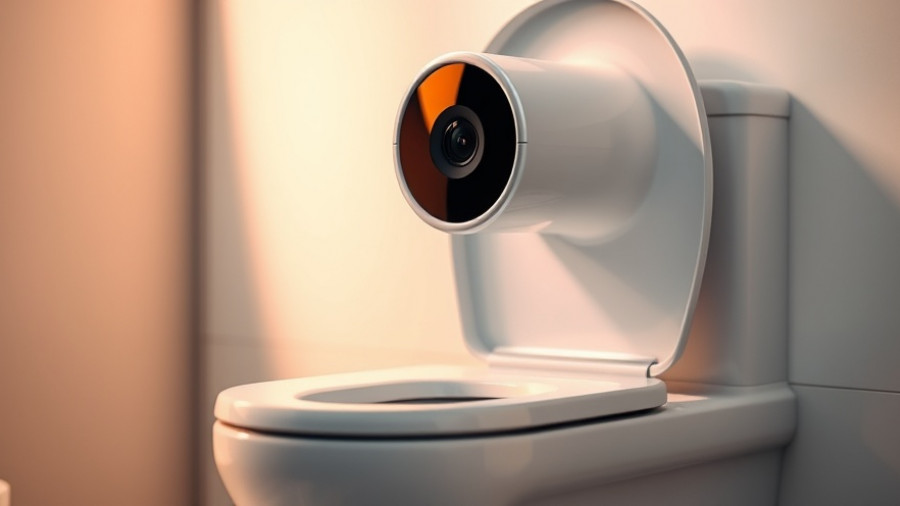
The Future of Health Monitoring is at Home
In an innovative leap, Kohler has unveiled the Dekoda—a $599 toilet-mounted camera designed to provide insights into gut health and hydration. As consumers become increasingly health-conscious, this novel device positions itself at the intersection of practicality and personal health management.
Transforming Bathroom Habits into Precise Health Metrics
The Dekoda aims to turn the bathroom experience into a proactive health monitoring routine. Utilizing AI-driven image analysis, the camera captures visual data from waste to offer feedback on hydration levels and potential health concerns, including blood detection. This concept echoes a growing trend in health tech, where the focus has shifted from merely wearable devices to integrated systems that offer insights into the biological processes that often go unnoticed.
Data Security and Privacy Concerns
While the promise of health monitoring is enticing, the introduction of a toilet camera inevitably raises questions about privacy. Kohler has addressed consumer concerns by promising robust data encryption, ensuring that the camera “sees down into your toilet and nowhere else.” However, the push for monitoring capabilities in such a personal space could make some users apprehensive about embracing this level of technological advancement in their homes.
A Growing Market for Bathroom-Based Health Tech
Kohler’s venture into toilet-based health monitoring is not a standalone effort. Competing with startups like Throne, the Dekoda reflects a burgeoning interest in the bathroom as a hub for health data collection. With previous innovations such as smart toilets already gaining traction in markets, consumers are primed for the next wave of innovative health solutions. As emphasized by experts, the bathroom already plays a vital role in monitoring our health, and this could lead to a newfound acceptance for bathroom health tech.
Substantial Investment for Consumer Health
In addition to the initial purchase price, users will face ongoing subscription fees ranging from $70 to $156 to fully access Dekoda's functionalities. This investment positions the device in a premium tier of health tech products, prompting potential buyers to weigh the cost against their health needs. Whether or not consumers will view this trade-off as worth it remains to be seen.
Conclusion: A New Era of Monitoring
Kohler's Dekoda is more than just a gadget; it’s a potential game changer in personal health monitoring. The shift towards smart health devices in unexpected spaces indicates a broader acceptance of technology in our daily lives and a willingness to leverage data in pursuit of better health outcomes. If successful, devices like Dekoda could pave the way for bathroom-centered monitoring trends that are set to dominate in the years to come.
 Add Row
Add Row  Add
Add 




Write A Comment